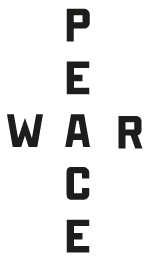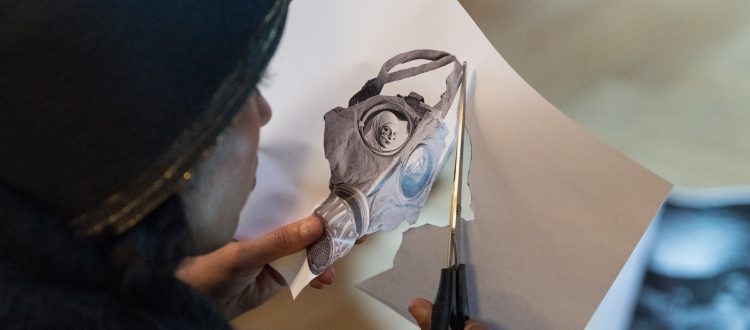Reading history through art / Reading art through history
Lessons from the cradle of propaganda –
We visited the workshop Propaganda : Civic education, in which participants are confronted with propaganda posters from the inter-war period and are challenged to reelaborate them, with the aim of further understanding the nuances in political communication of the present day.
The challenge consisted of redrawing comics from political campaigns and exposing the underlying motives and tools that characterised the origin of this form of communication.
The workshop was organized by the Bundeszentrale für politische Bildung.It was aimed at showing that there is never a clear distinction between propaganda and state education, but there are many nuances that can be captured and described. The examples they took for this activity were the German “Black shame” campaign during the occupation of the Rheineland, and the British campaign “remember Belgium” who aimed at mobilizing troops.
We spoke with Sascha Hommer and Elisabeth Desta, teamers of the workshop, to understand more about the activities they guided:
The theme of this workshop is propaganda and civic education, how subtle is the limit between the two?
When states put out information in books, in posters, in TV-shows and so on, of course they’re doing it for their own purposes, it’s logical. The BpB stresses the point that there are lots of grey scales also. Between different countries and political systems there is not a good and an evil but many shades of grey. I think propaganda begins at the point when you divide the world into good and evil, and start to seduce and manipulate your own people.
These posters you selected are very simplistic, they convey a short and direct message. Do you see this trend returning now that we are in the world of social media?
Absolutely, it was one of the most thrilling experiences that we had during the workshop. During the work it became increasingly clear that the same sentiments, the same propaganda tricks, are very present in our time again, the same motives are used and the same anger and fear arises.
From your experience, what is the most relevant lesson we can learn by analysing these posters?
I think its very important for everyone to get this kind of education in order to know that there is a continuity in the motives and propaganda methods. It allows you to compare the present to the past. Especially because of the current migration situation in Germany and the whole debate about it, many people say that this had never happened before. It was never possible that that many migrants would come to Germany. When you look at history, however, you see that migration is the normal status of countries all over the world and across history. Such eduction helps to fight against your own fears.
The idea of the “détournement” means taking pieces of propaganda and rearranging them to show their contradictions. Do you think this could be potentially one of the ways to artistically undermine propaganda?
I think so, especially drawing is very often an underestimated key to reality. When you’re drawing something, you think about things in a different way. I think civic education but also education in general are about having various perspectives and being able to change one’s perception of reality through different forms of expression.
By Francesco Lanzone

